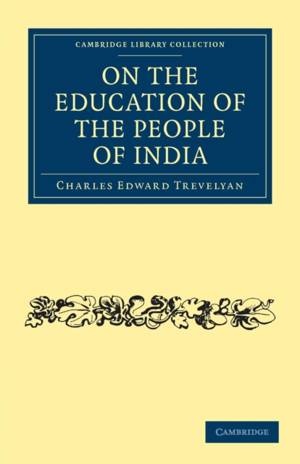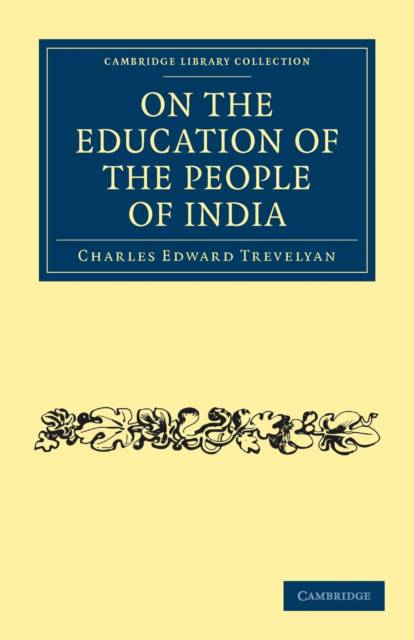
- Afhalen na 1 uur in een winkel met voorraad
- Gratis thuislevering in België vanaf € 30
- Ruim aanbod met 7 miljoen producten
- Afhalen na 1 uur in een winkel met voorraad
- Gratis thuislevering in België vanaf € 30
- Ruim aanbod met 7 miljoen producten
Zoeken
Omschrijving
Charles Edward Trevelyan (1807-1886) published Education of the People of India in 1838. The work is a rigorous defence of the educational reforms that took place in colonial India during the 1830s, which led to a western-based curriculum replacing traditional Indian learning. The work is a response to the arguments of orientalists such as H. H. Wilson (1786-1860), recently retired from government office in India, but still advocating an orientalist educational policy. In this work Trevelyan puts forward his arguments for the moral and intellectual advantages of English as the principle language of instruction and defends the government's resolution of March 1835 that specified that Indians should be educated by the study of European literature, culture and science. It was one of the most influential Anglicist tracts of the Indian educational debates, and it gives valuable insight into the ideas behind what became standard government educational policy.
Specificaties
Betrokkenen
- Auteur(s):
- Uitgeverij:
Inhoud
- Aantal bladzijden:
- 234
- Taal:
- Engels
- Reeks:
Eigenschappen
- Productcode (EAN):
- 9781108276641
- Verschijningsdatum:
- 2/06/2011
- Uitvoering:
- Paperback
- Formaat:
- Trade paperback (VS)
- Afmetingen:
- 140 mm x 216 mm
- Gewicht:
- 299 g

Alleen bij Standaard Boekhandel
+ 122 punten op je klantenkaart van Standaard Boekhandel
Beoordelingen
We publiceren alleen reviews die voldoen aan de voorwaarden voor reviews. Bekijk onze voorwaarden voor reviews.











